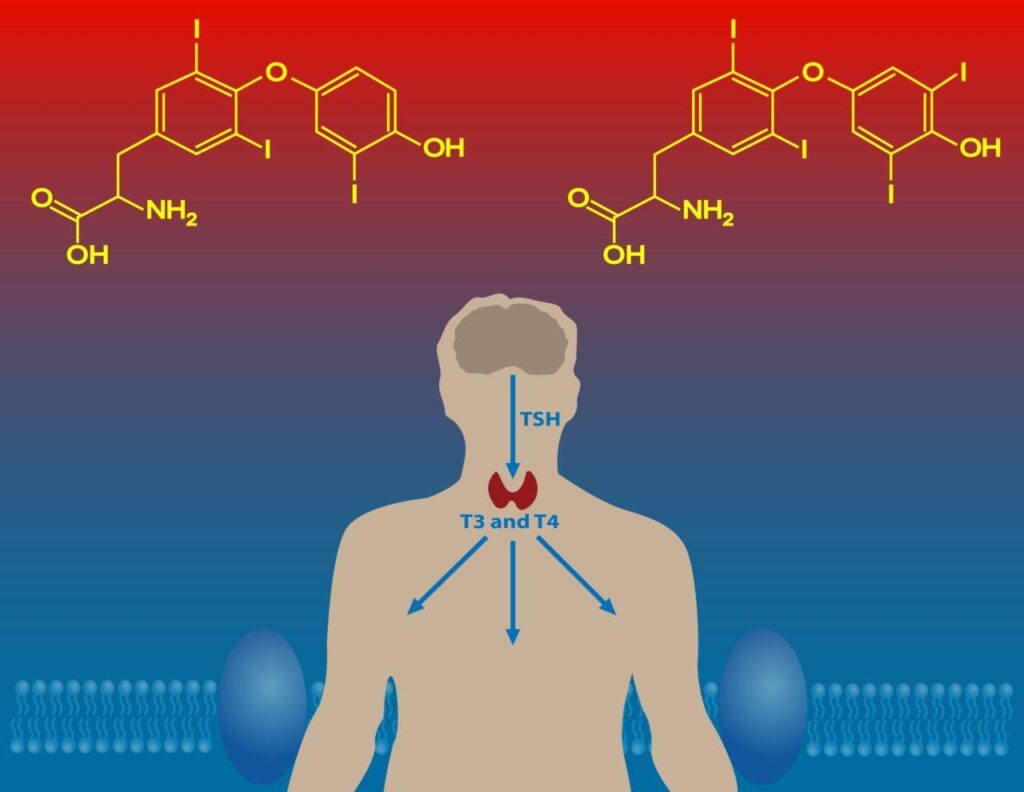Many different hormones have an impact on the growth of your hair. Some of these hormones are active all the time and others under specific conditions. Therefore, hormonal imbalance can cause hair loss on different parts of the body.
Influence of hormones on hair loss
Male sex hormones have the biggest impact on hair condition. Excessive androgen levels both in women and men cause hair loss. The problem most often affects men who experience alopecia on the temples and the top of the head. Women usually experience hair loss during menopause as the level of female sex hormones significantly decreases. Progesterone has a negative effect on hair condition i.e. it becomes greasy and prolactin can increase hair loss. Some hormone changes can increase excessive hair growth especially during puberty and the menopause. Excessive hair grows on different parts of the body e.g. on the upper lip, abdomen, back or chest.
What hormones should be tested when you lose hair?
If you notice excessive hair loss, you should consult a trychologist who will diagnose the cause of the problem. However, it is recommended to do medical tests before a visit. These tests include: TSH, FT3, FT4, prolactin, testosterone, androstenedione, progesterone, cortisol and estradiol levels. There are many causes of hair loss therefore it is important to do complete medical tests. Hair loss can also be caused by other factors not connected with hormones. Then is it recommended to assess levels of ferritin, vitamin B12, glucose, ESR (erythrocyte sedimentation rate) and complete blood count. On the first visit a doctor will carry out a medical interview to make an accurate diagnosis. A doctor can also arrange for additional tests and a visit with a gynaecologist or endocrinologist if necessary.
Hair loss vs. thyroid hormones
One of the symptoms of a thyroid disease is excessive hair loss and its weakening. Hyperthyroidism and hypothyroidism result in a slower metabolism and worse skin condition. Generally, thyroid dysfunction is linked with T3 and T4 production. These hormones play many important roles in the body and stimulate the metabolic process and energy production. Hyperthyroidism and hypothyroidism are two different disorders with various symptoms. However, in both cases people experience changes in hair and skin structure. Unhealthy hormone levels slow down the processes in hair follicles to stop hair growth in the final phase. There are also sebaceous gland dysfunctions and the hair becomes dry and brittle. After 2-4 months hormonal imbalance causes problems with hair condition. Hair loss can be stopped by pharmacological treatment i.e. restore the hormonal balance.
Cortisol vs hair loss
Adrenal glands situated in the upper part of the kidneys produce cortisol. It is called a stress hormone because it is secreted in stressful situations. A big problem is when there is a chronic increase in the level of cortisol which results in different disorders (including heart attack or stroke). One of the symptoms of increased cortisol level is hair loss (alopecia). The disease causes include medications, excessive cortisol production in adrenal glands, long-term stress or pituitary tumor. A diagnosis involves testing cortisol level in urine three or four times and treatment depends on the disease cause. Keeping a healthy cortisol level helps diminish gradually the disease symptoms.
Alopecia caused by hormones – treatment
The treatment method depends on the diagnosed disorder. One option to fight alopecia is hormonal therapy. Additionally, you can take vitamin supplements or herbs to stimulate hair growth. You can also use high quality cosmetics such as hair conditioners, shampoos and rub-on ointments. A trychologist can recommend different treatment options to stimulate follicle growth. A highly effective method is needle mesotherapy which uses the injections of active substances into the scalp. A FUE hair transplant is a successful method of hair restoration. An experienced doctor guarantees the best results and significantly thicker hair.







Nice blog! Very well written in an easy-to-understand manner. I appreciate your sincere efforts you have made in writing this kind of informative blog. Keep sharing!